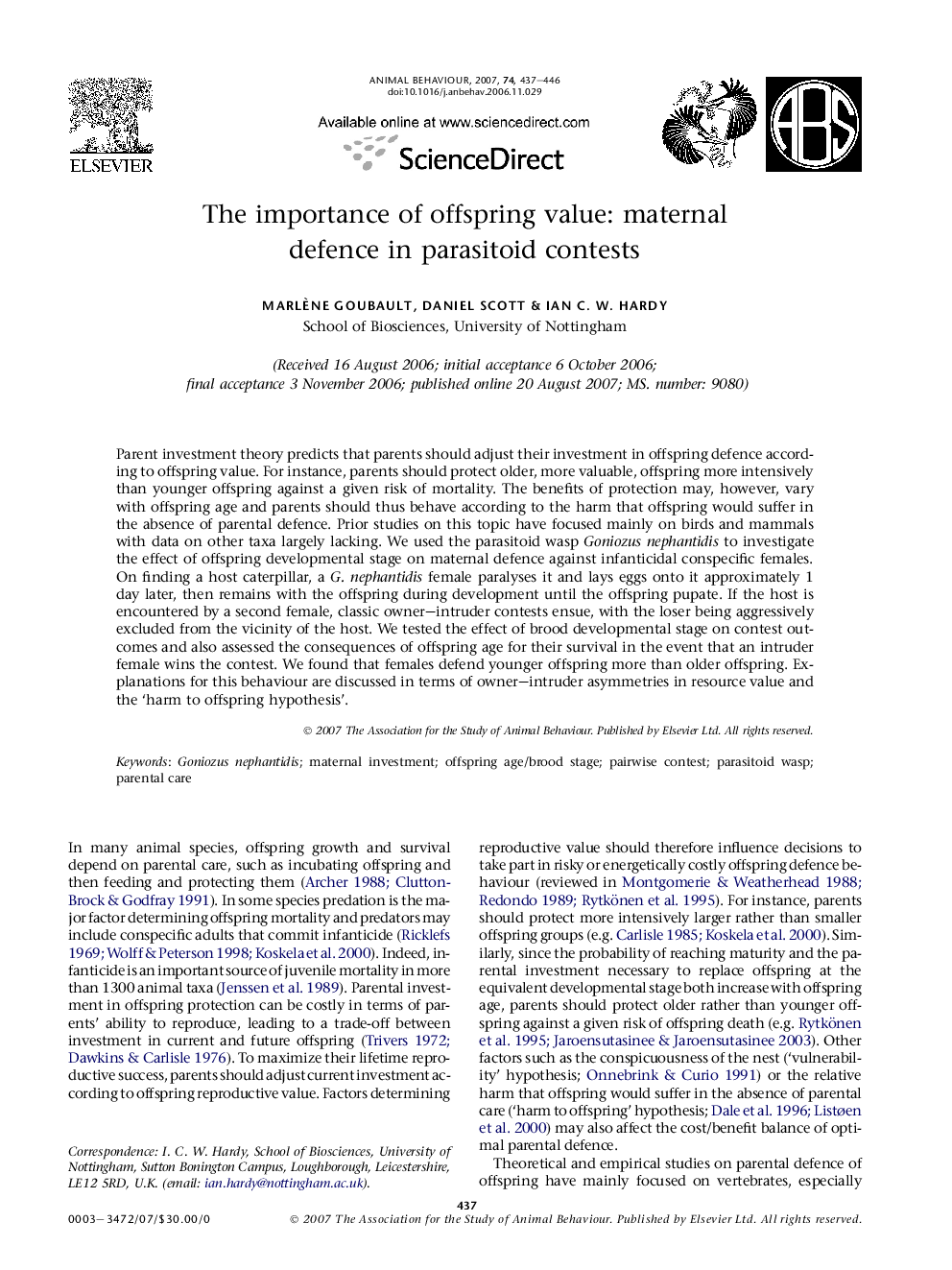| Article ID | Journal | Published Year | Pages | File Type |
|---|---|---|---|---|
| 2418069 | Animal Behaviour | 2007 | 10 Pages |
Parent investment theory predicts that parents should adjust their investment in offspring defence according to offspring value. For instance, parents should protect older, more valuable, offspring more intensively than younger offspring against a given risk of mortality. The benefits of protection may, however, vary with offspring age and parents should thus behave according to the harm that offspring would suffer in the absence of parental defence. Prior studies on this topic have focused mainly on birds and mammals with data on other taxa largely lacking. We used the parasitoid wasp Goniozus nephantidis to investigate the effect of offspring developmental stage on maternal defence against infanticidal conspecific females. On finding a host caterpillar, a G. nephantidis female paralyses it and lays eggs onto it approximately 1 day later, then remains with the offspring during development until the offspring pupate. If the host is encountered by a second female, classic owner–intruder contests ensue, with the loser being aggressively excluded from the vicinity of the host. We tested the effect of brood developmental stage on contest outcomes and also assessed the consequences of offspring age for their survival in the event that an intruder female wins the contest. We found that females defend younger offspring more than older offspring. Explanations for this behaviour are discussed in terms of owner–intruder asymmetries in resource value and the ‘harm to offspring hypothesis’.
